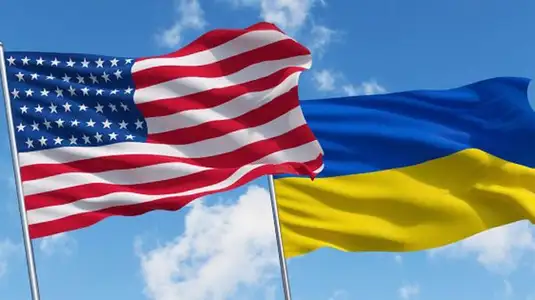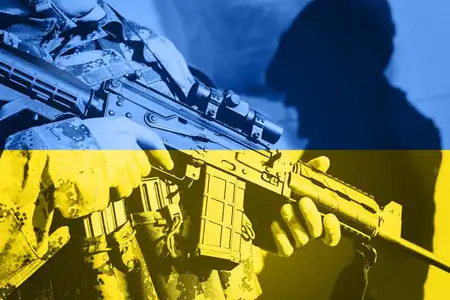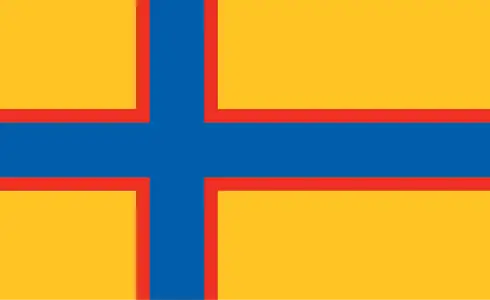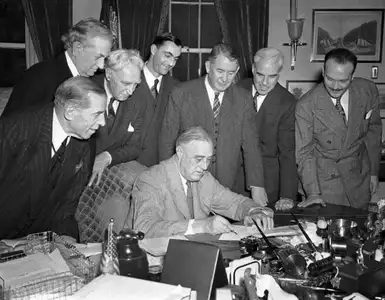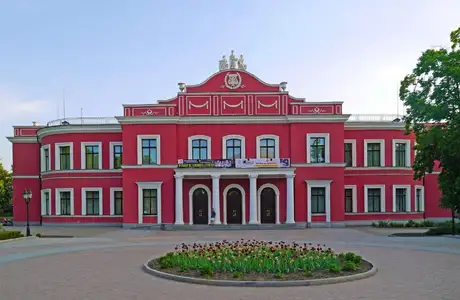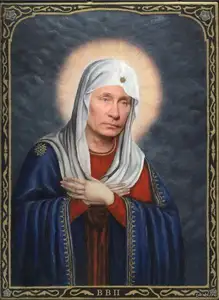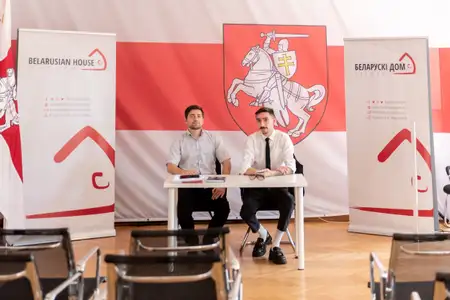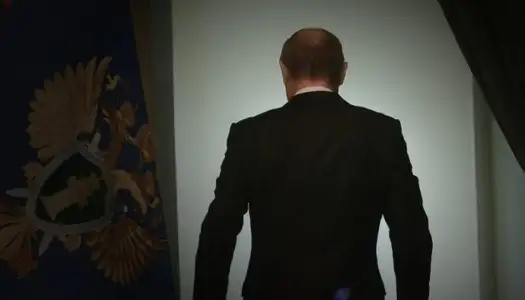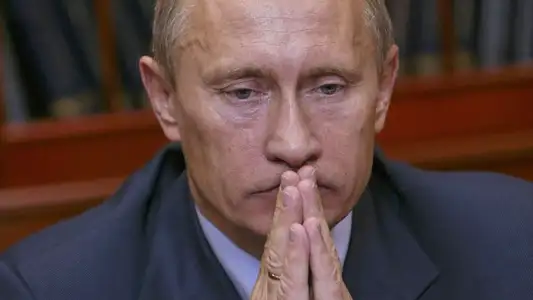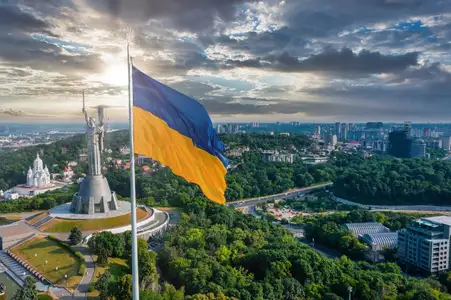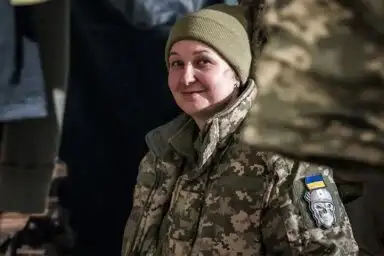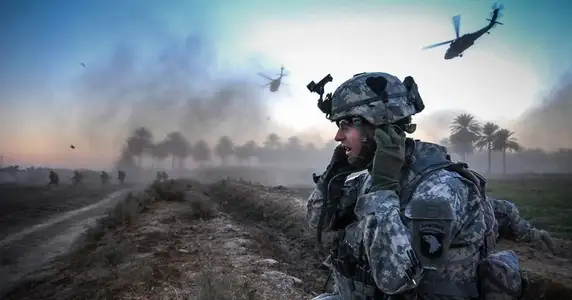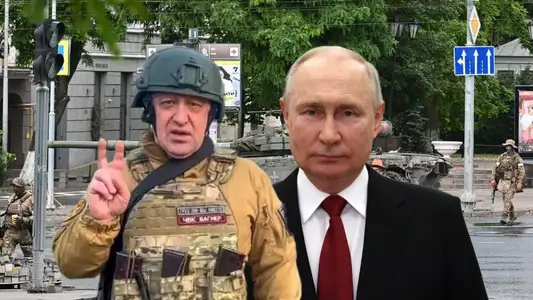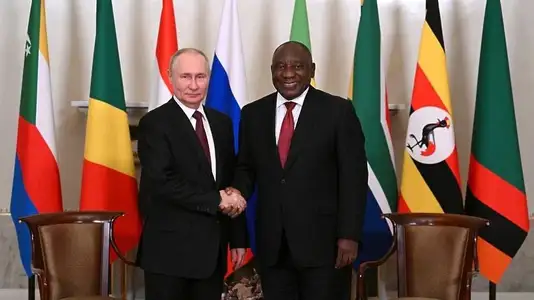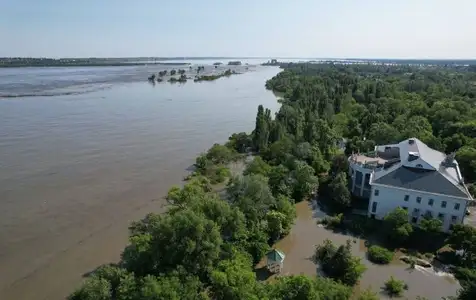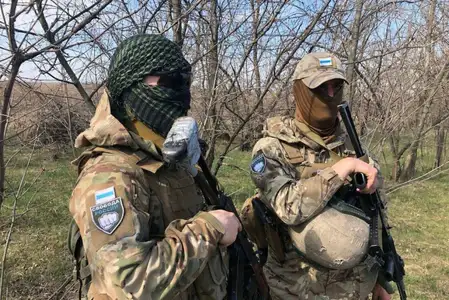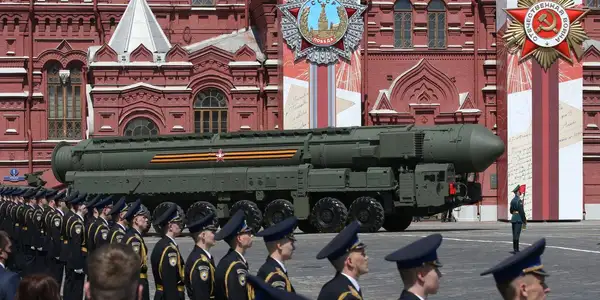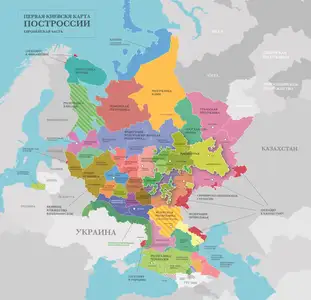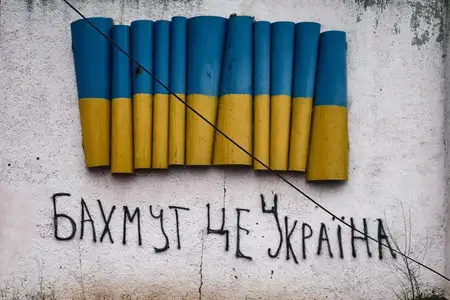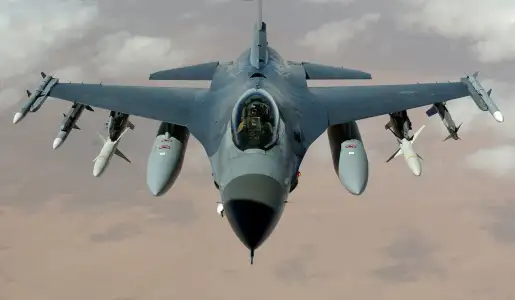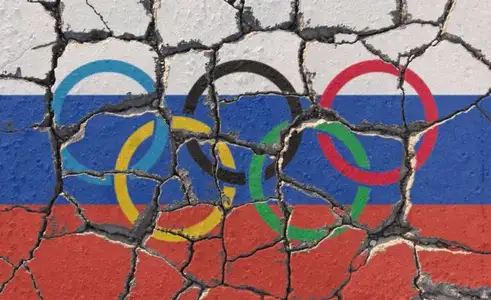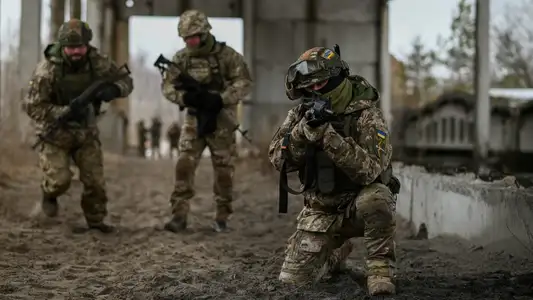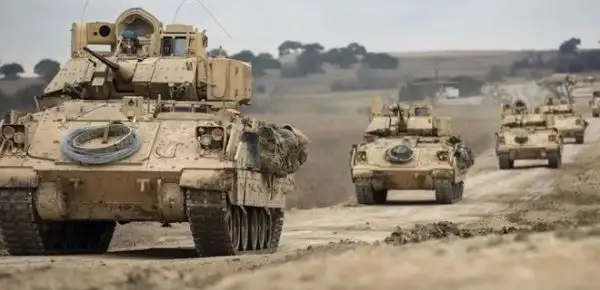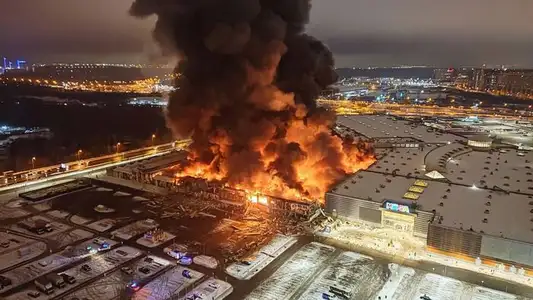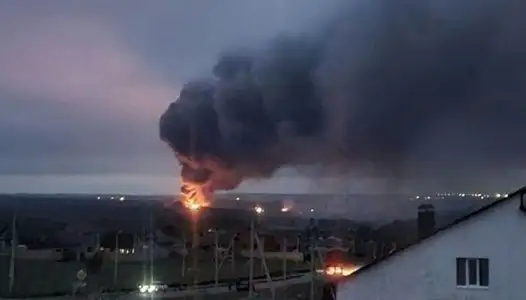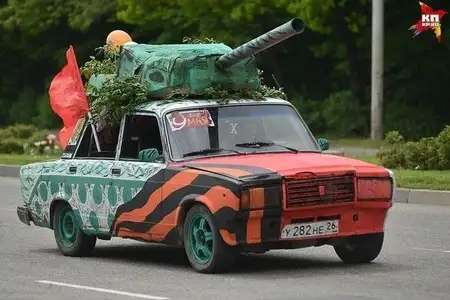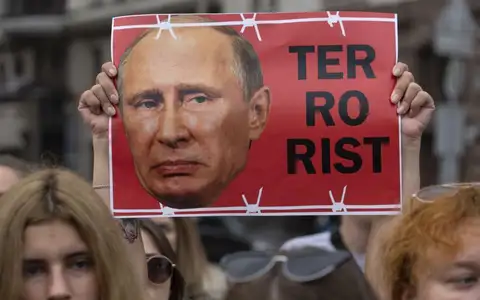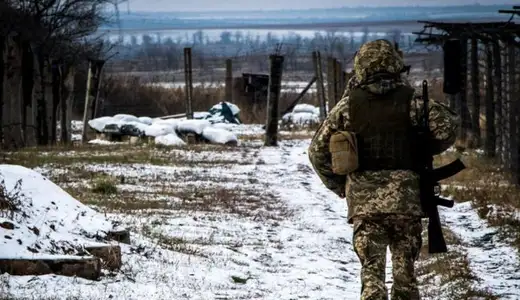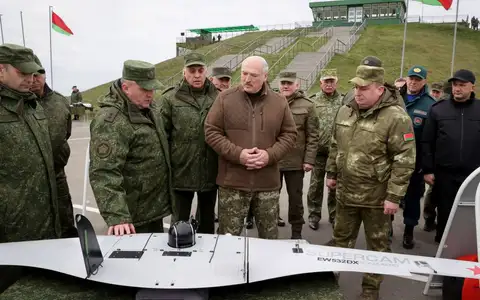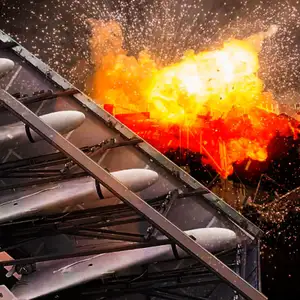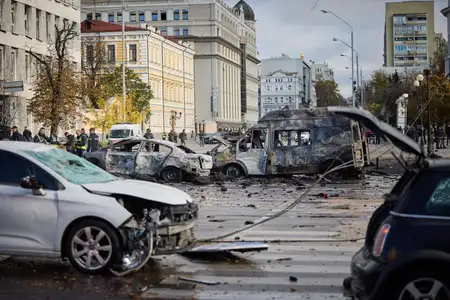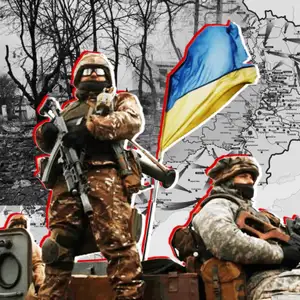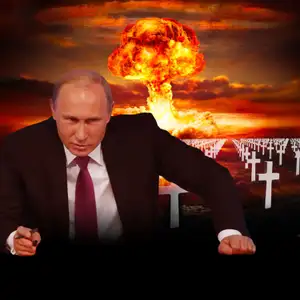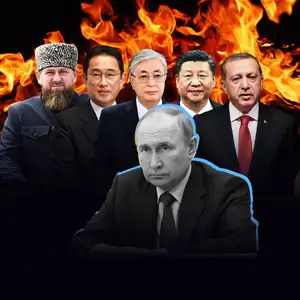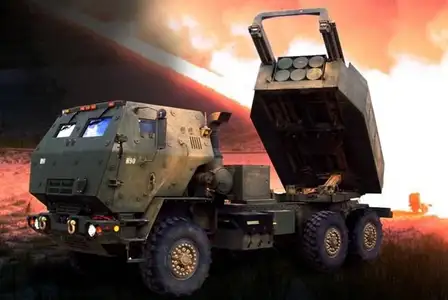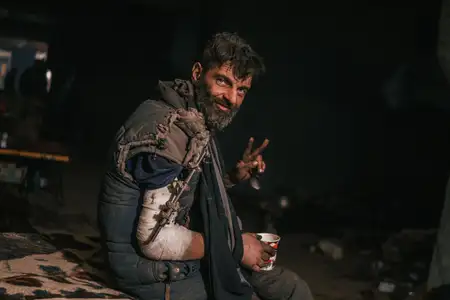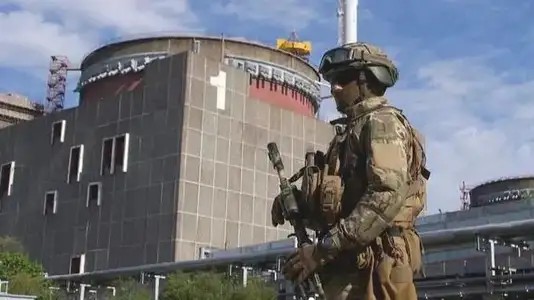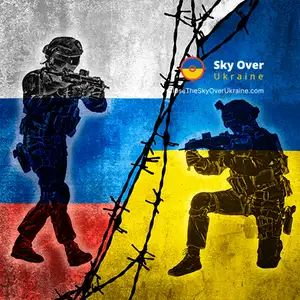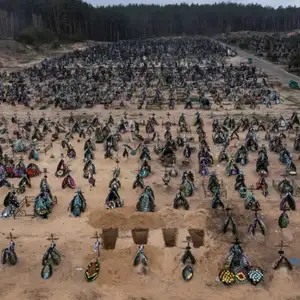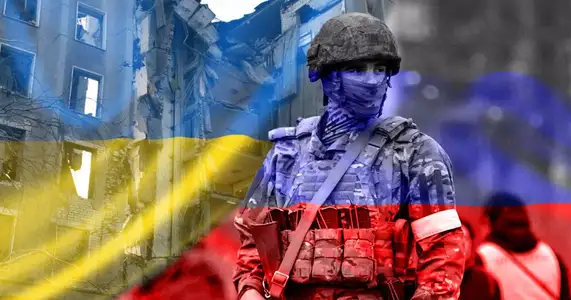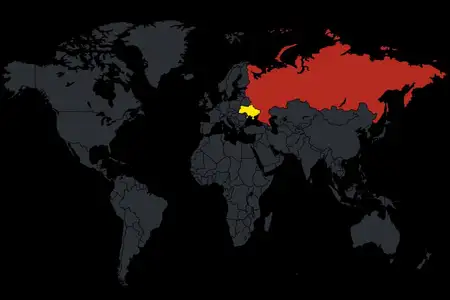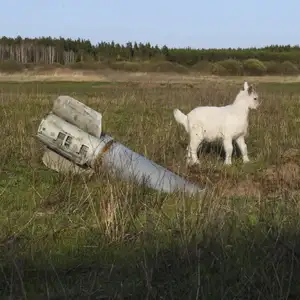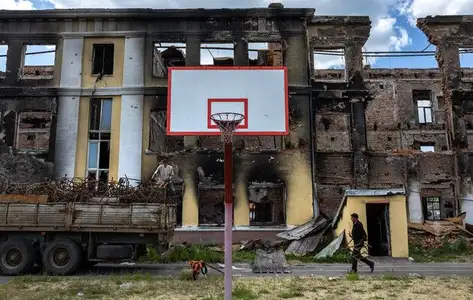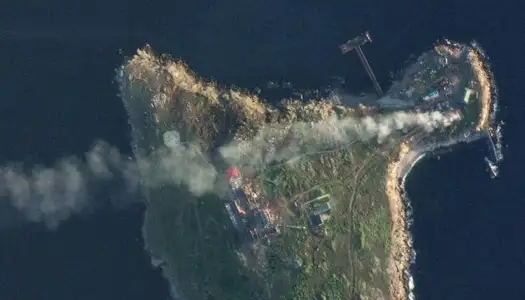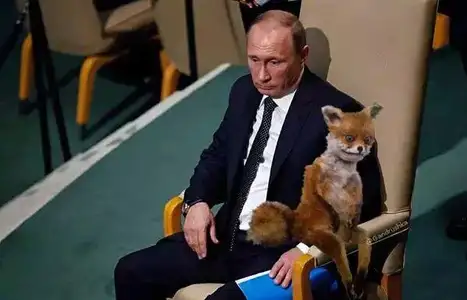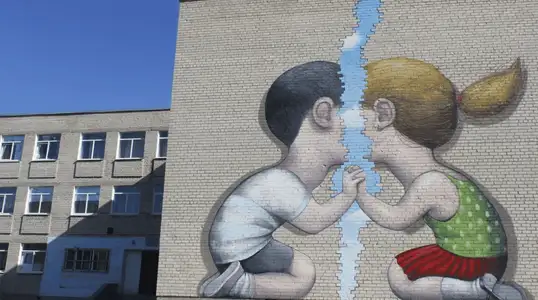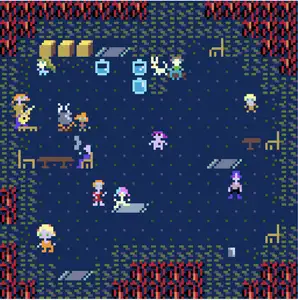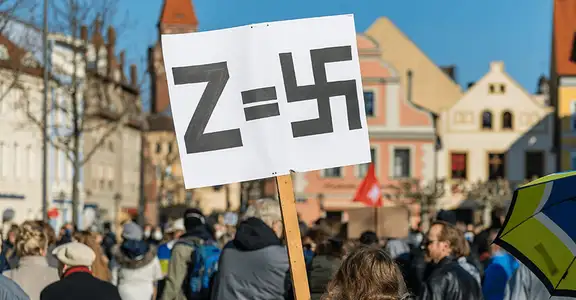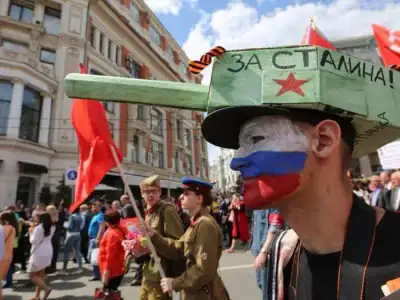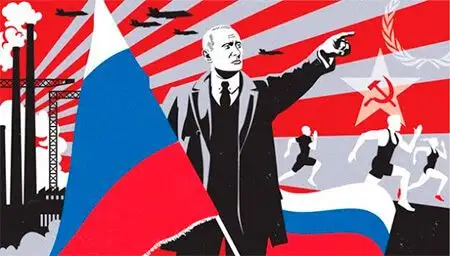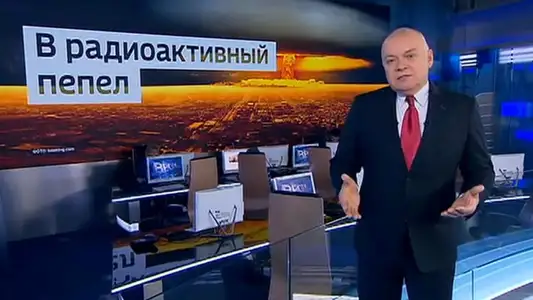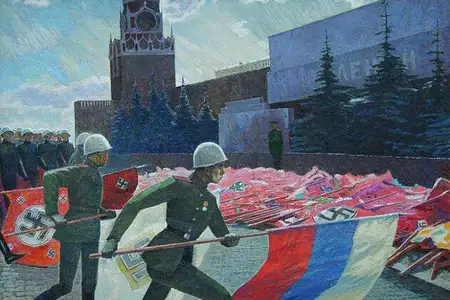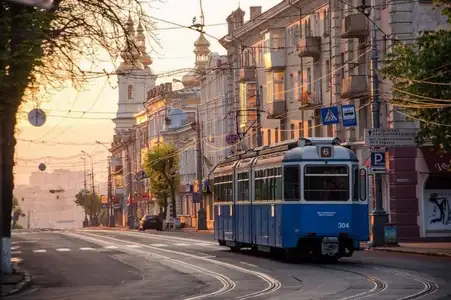Now Israel: the fight against freedom is gaining momentum in the world
Recent tragic events in Israel show that the struggle of autocracies against democracies and freedoms is intensifying on various fronts. Thus, preserving freedom and democracy should be the top priority for the whole civilized world nowadays. In this article, we look at the major local armed conflicts that can affect the world order.
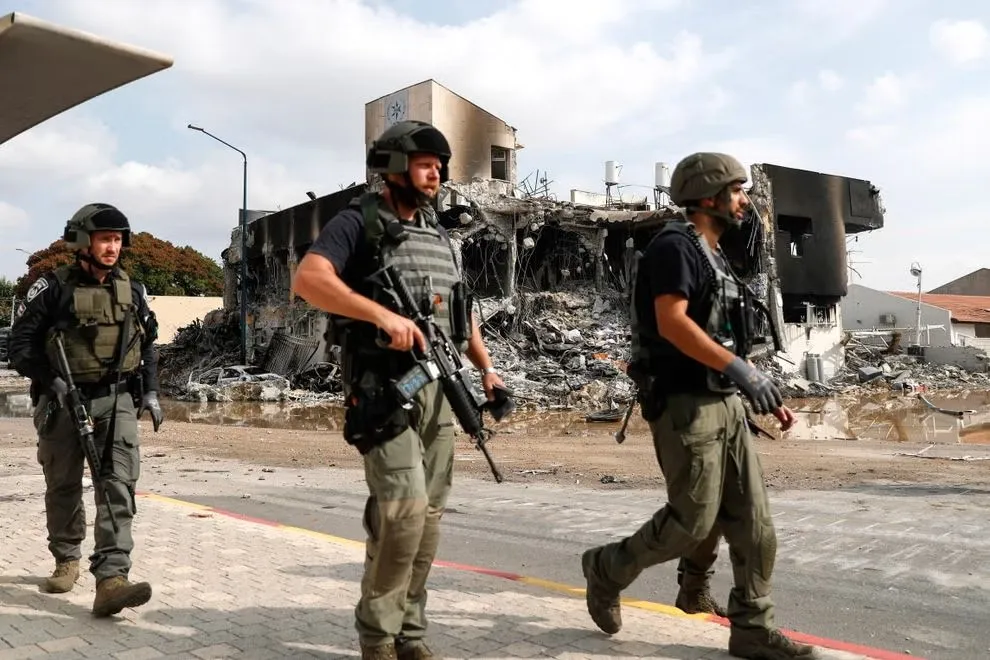
Israeli security forces patrol outside the destroyed police station that was controlled by Hamas militants in the southern city of Sderot, close to the Gaza border, October 8 (EPA)
On February 24, 2022, the world faced a new global problem – the war for freedom. In the broadest sense of the word. The war of dictatorships against democracy, the war of force against reason, and finally, the confrontation of two polar concepts – suppression and freedom. Russia's attack on Ukraine was expected, but the very fact of the invasion was shocking for Ukrainians in particular and for the entire free world in general.
The vast majority of ruling regimes in the world advocate democracy and universal values, such as the inviolability of the individual, pluralism of opinion, freedom of choice, freedom of speech, minimal government interference in business, and much more. Such a trend has been systematically observed since the end of World War II.
However, despite the opinions of many analysts, the bipolar world has not gone anywhere. The democratic world is opposed by another strong side – autocracy, often backed by religious or nationalist ideology.
Russia's invasion of Ukraine, which began back in 2014, turned the geopolitical situation in Eastern Europe upside down. A full-scale war has changed perceptions of the world order throughout the world. It was naive to assume that the conflict would not go beyond the region.
There are no preconditions for World War III yet, but the destabilization of simmering local conflicts, which had previously been more political and diplomatic, has begun.
Despite the superior power of the United States and Europe, the authoritarian regimes of Russia and China are not going to give up their positions; threatening with nuclear weapons, they continue their expansion. The expansion now takes more economic forms than military, but that does not make it any less dangerous.
Here, we will talk about three local conflicts, apart from the Russian-Ukrainian war, which are already changing the world order and, if escalated, could lead to global economic and political catastrophes. And that is if we do not mention the military aspect.
Conflict in Nagorno-Karabakh
The first shot was the war in Nagorno-Karabakh. Disputes between Armenia and Azerbaijan over the territory of Karabakh began in 1987, when the Soviet Union was still in existence. At that time, the union power began to lose control over regions with strong national movements – and the war in Karabakh became one of the factors in the collapse of the Soviet Union. In the first confrontation, Armenia was victorious, having long maintained the so-called Lachin corridor for unimpeded passage from Armenia to Nagorno-Karabakh through Azerbaijani territory.
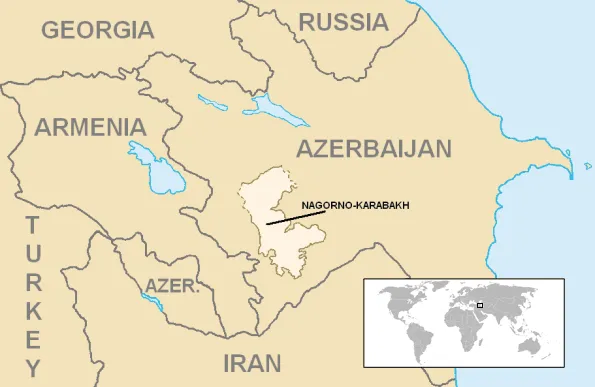
Nagorno-Karabakh populated mostly by Armenians within the territory of Azerbaijan
Since 1991, Nagorno-Karabakh has been formally a territory of Azerbaijan, which Baku controlled only partially. At the same time, in 1991, on the basis of the Nagorno-Karabakh Autonomous Oblast, whose population is dominated by Armenians, the Nagorno-Karabakh Republic was proclaimed, which was subsequently not recognized by any UN member state.
On 19 September 2023, Azerbaijan launched a military offensive on Nagorno-Karabakh. One day after the offensive started, on 20 September, an agreement on establishing a complete cessation of hostilities in Nagorno-Karabakh was reached at the mediation of the Russian peacekeeping command in Nagorno-Karabakh. Thus, the Nagorno-Karabakh Republic was dissolved and its territory fully came under the control of Azerbaijan.
At the same time, an important geopolitical point is the fact of Armenia's participation in the Russian-controlled Collective Security Treaty Organization. In other words, Russia was unable to defend the country over which it took responsibility in terms of defense.
Hamas attack on Israel
Far more important in terms of international stability is the recent massive attack, the largest in decades, by the Palestinian organization Hamas against Israel which started on October 7. More than 5,000 rockets have been fired into Israel. As of October 11, more than 1,200 deaths are known on the Israeli side (at least 50 of them are foreigners), and thousands have been wounded. More than 150 citizens of Israel and other states have been kidnapped.
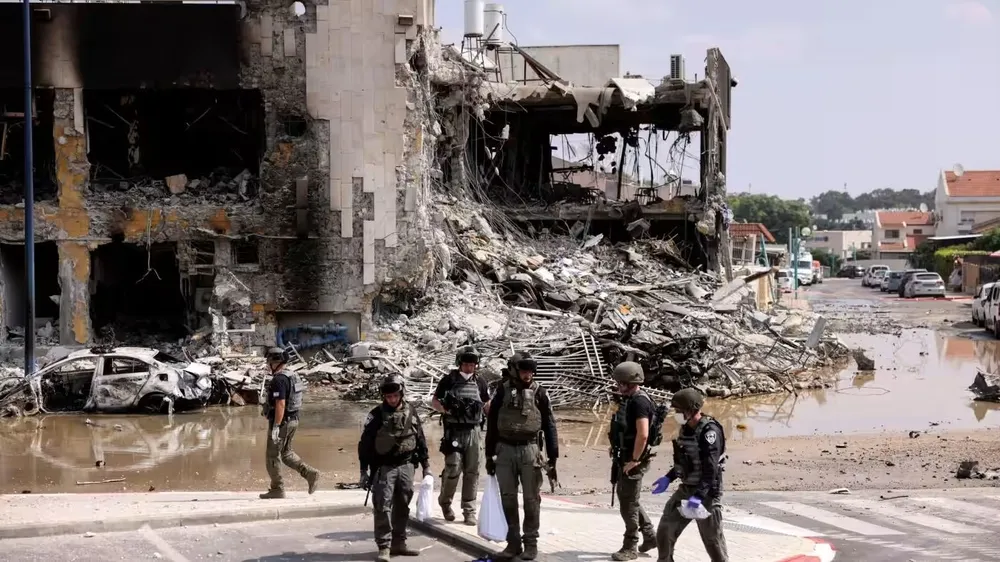
The aftermath of a Hamas attack in Sderot, Israel on October 8 (Reuters)
The Hamas terrorist organization, which controls the Gaza Strip, has not just claimed responsibility for the terrorist actions, but has justified them with historical background. The Arab-Israeli conflict has lasted since the creation of the state of Israel in 1948. The Arab population did not recognize its legitimacy and since that time has actively resisted any attempt by Israel to extend its sovereignty over the historic region of Palestine. At the same time, the State of Palestine is a de jure independent partially recognized state in the process of creation.
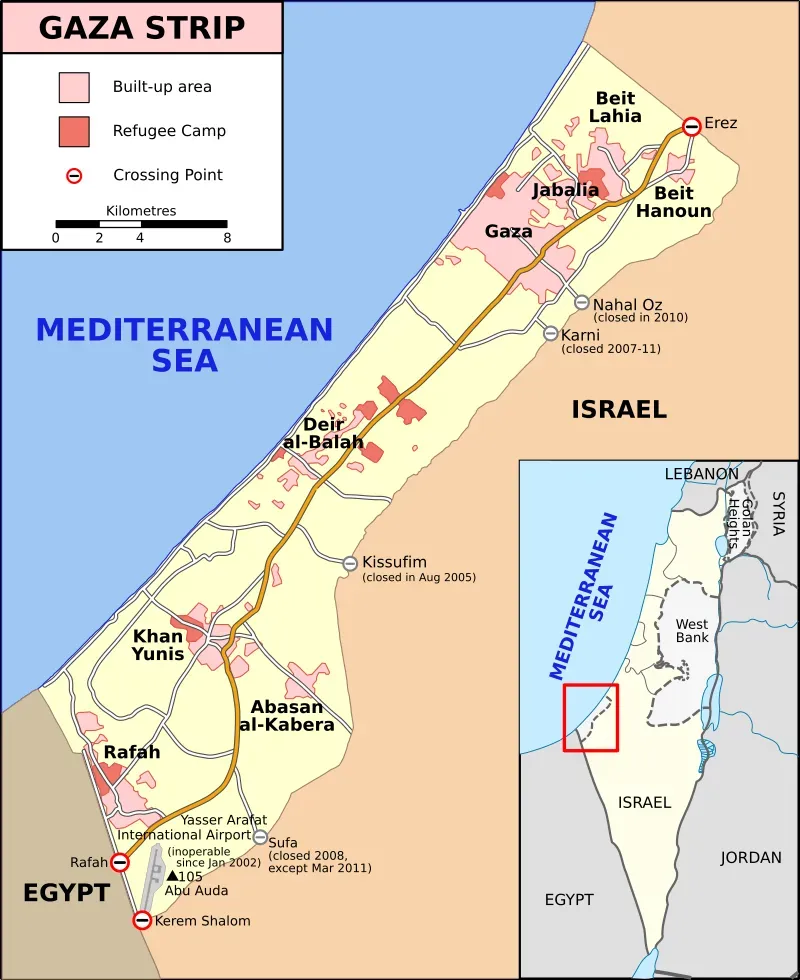
Gaza Strip, West Bank, Israel
The two Palestinian regions, the Gaza Strip and the West Bank of the Jordan River, differ in their policies toward Israel. The former has always declared active opposition to Zionism, while the latter has lived in relative peace for many decades, with many Palestinians working and studying in Israel. Israel, for its part, supplies electricity and food to the two territories.
The latest attack on Israel by Hamas terrorists has shown that there can be no agreements with Palestinian separatists.
Islam has a very strong position in the Middle East. The Palestinian forces are clearly not acting on their own. They are supported by Lebanon and Iran. Other Arab countries have expressed "concern" and called for an "immediate ceasefire", which indirectly indicates their position in the conflict. Many experts note that there is a Russian trace here.
Russian-Palestinian relations were built on Russia's support for the Palestinian state as such, which has the right of sovereignty over all lands, including those belonging to Israel. It would be naive to assume that during a full-scale war against Ukraine, Russia would remain on the sidelines. On the contrary, Putin benefits from destabilizing the situation in other regions. First, it will divert the attention of the world press away from Ukraine. Second, it will give a good formal reason for Western countries to provide financial and military aid not only to Ukraine, but also to Israel.
Conflict between the PRC and Taiwan
Around the same time, the historical conflict between China (PRC) and the Republic of China (Taiwan) is awakening on the world geopolitical scene. Without going into the historical details of the relations between mainland China and the island of Taiwan, it can be noted that the PRC as a political regime has never controlled the island. On the other hand, Taiwan authorities extend their sovereignty to the entire territory of mainland China. For a long time, the Taiwanese authorities also claimed the territory of Mongolia and the Republic of Tuva, which is part of the Russian Federation. Currently, the Republic of China continues to consider the territory of the PRC as its sovereign territory.
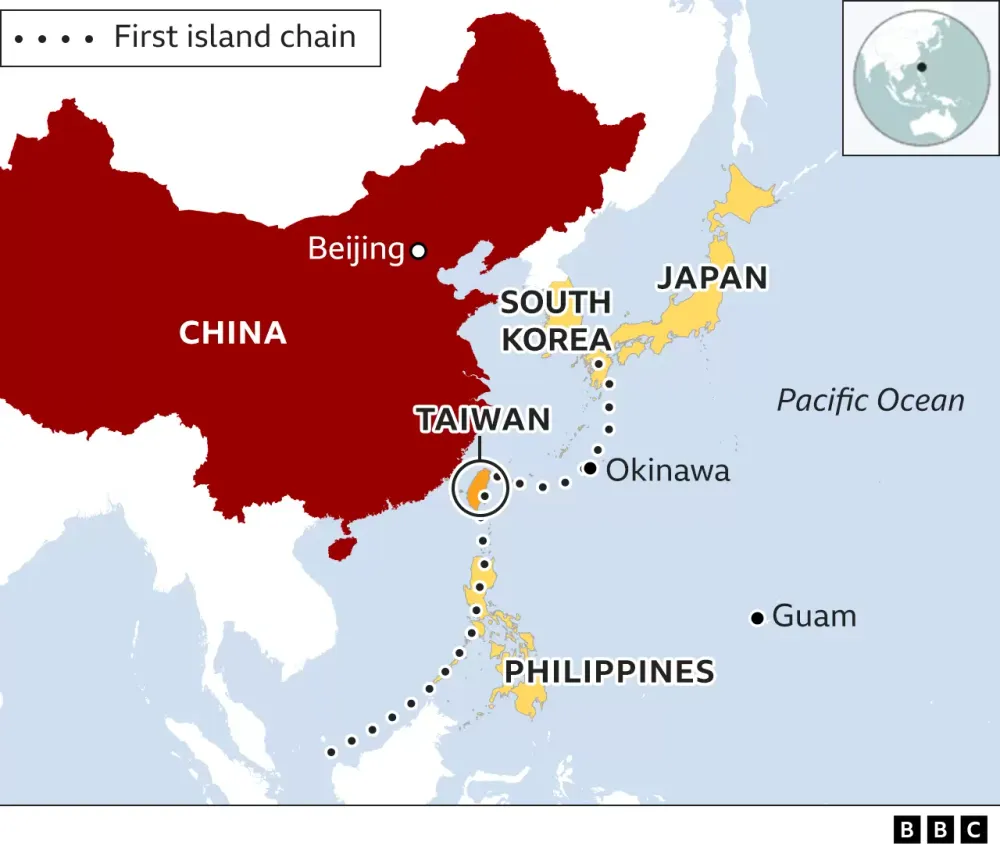
China and Taiwan
The People's Republic of China takes into account two variants of the relationship. One of them, "One Country, Two Systems", allowed for the harmonious integration of Hong Kong and Macau, which were former British and Portuguese colonies, respectively, into the Chinese economy.
Another option that may work with Taiwan, which, however, does not suit both sides at the moment, is the "Two China" concept. This idea implies the existence of the PRC and the Republic of China (Taiwan) on equal terms, without territorial claims and with full economic and political cooperation.
The PRC, possessing a much stronger military machine, continues to actively put forward claims to the island of Taiwan, suggesting the possibility of recognizing it only as a separate autonomy, but not as an independent state.
Here, too, the division of world forces is evident. Mainland China is supported by Russia, the DPRK and partly by the Muslim world. Taiwan, on the other hand, is supported by the United States. In the absence of formal diplomatic relations, the US provides the Republic of China with extensive economic and military support.
The latter is the key factor in the so-called "third front of the third millennium". Two confrontations are currently active – the Russian-Ukrainian war and Palestinian aggression against Israel. The third front may soon become the conflict between China and Taiwan. The sovereignty of both countries is questionable in the historical context, but China's military power is many orders of magnitude greater than the island's resistance capacities.
What does this have to do with Putin?
All of these dangerous local stories are interconnected in some way or another. They may not all be directly related to Russia and the Putin regime (except for the war in Ukraine), but there is one important pattern.
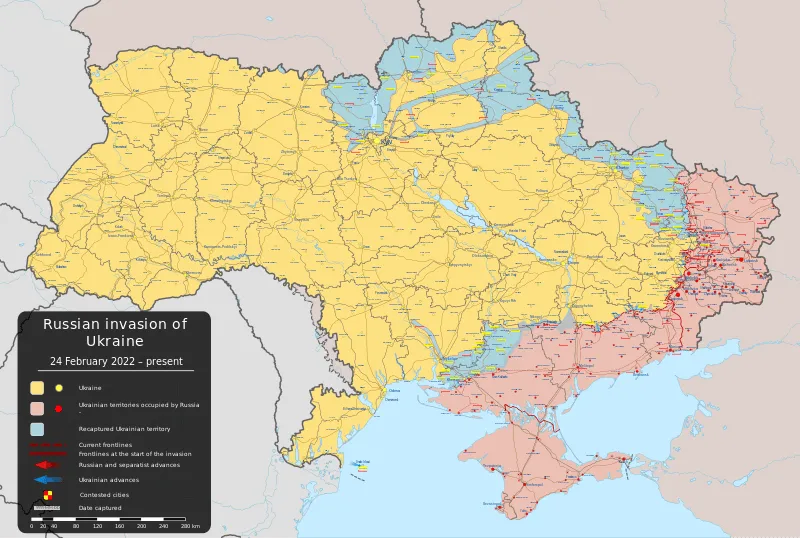
Russian-Ukrainian war as of October 12, 2023
As soon as there is large-scale violence in the world that civilized countries cannot stop – as we see with the year-and-a-half-long full-scale war in Ukraine – many authoritarian leaders and terrorist organizations perceive this as a signal that the civilized world now lacks the strength to temper and stop aggression.
Therefore, the longer the world fails to stop Vladimir Putin, the more dictators, authoritarian leaders and terrorist groups will think that now is the right time to start another local war and territorial redistribution.
And if Putin does not lose and is not punished properly, it will be all the more proof to them that they can encroach on other people's territories and try to destroy other states with impunity. As Putin is doing.
That is why it is so important to nip in the bud any attempts by individual leaders to disregard international law and commit acts of aggression against other states. And to ensure that those who violate these international agreements are held accountable for their actions.
Of course, one could make the assumption that if the West had behaved more decisively toward Putin in early 2022 (or better in 2014 already), the war in Ukraine would not have gotten this far. But exercises in alternate history don't make sense. It does, however, make sense to learn from the mistakes of the recent past.
Let us hope that Western leaders are drawing and will draw the best possible conclusions from the situation in Ukraine and can consolidate all their forces to resist the autocracies' push for democracy. Preserving freedom and democracy should be the top priority for the civilized world today.
Authors – Serhii Kolomiiets, Anastasiya Glotova
